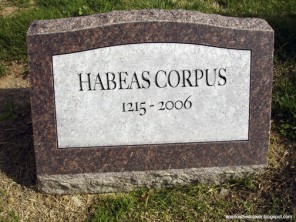FIFTH CIRCUIT CLOSES DOOR TO HABEAS PETITION THAT COULD HAVE SHINED LIGHT ON BROAD MISCONDUCT IN MISSISSIPPI
 As comprehensively reported by Radley Balko, and picked up by the Washington Post here, the Fifth Circuit recently declined to permit Mississippi inmate, Tavares Flaggs, from filing a successive 28 U.S.C. § 2254, or habeas, application. The panel, which included Jerry Smith, Grady Jolly, and Edith Clement, ruled that “the factual predicate” underlying Flaggs’ claims was “not new,” and therefore did not warrant permission to file another application for habeas relief. In and of itself this result is hardly newsworthy, but underlying and supporting Flaggs’ petition, filed by the Mississippi Innocence Project, was an extraordinary catalogue of potential misconduct emanating from the actions of Steven Hayne, “a medical examiner who for about two decades was able to monopolize the autopsy business in Mississippi.”
As comprehensively reported by Radley Balko, and picked up by the Washington Post here, the Fifth Circuit recently declined to permit Mississippi inmate, Tavares Flaggs, from filing a successive 28 U.S.C. § 2254, or habeas, application. The panel, which included Jerry Smith, Grady Jolly, and Edith Clement, ruled that “the factual predicate” underlying Flaggs’ claims was “not new,” and therefore did not warrant permission to file another application for habeas relief. In and of itself this result is hardly newsworthy, but underlying and supporting Flaggs’ petition, filed by the Mississippi Innocence Project, was an extraordinary catalogue of potential misconduct emanating from the actions of Steven Hayne, “a medical examiner who for about two decades was able to monopolize the autopsy business in Mississippi.”
While it is unclear whether and to what extent the information in the Project’s filing was “new” as required under Section 2254 (Flaggs’ apparently filed his first habeas application in 2011, and some of the issues from Haynes’s shoddy work were already known), at the very least there should be cause for concern that individuals formerly and currently imprisoned in Mississippi may be actually innocent and/or at least the unwitting victims of a state-sanctioned and enabled medical examiner whose work was sub-standard and not credible. According to Balko, Hayne’s work has already “led to at least two wrongful convictions, and acquittals after new trials were granted in other cases.” Unfortunately, because most of the cases with the potential to shine a light on Hayne’s activities are post-conviction and subject to “finality” concerns underlying the “new” Section 2254, without some political movement or federal intervention, it is unlikely that a hearing on the potential depth of this scandal will ever occur.
TEL










1 Comment
I totally understand the frustration with the Fifth Circuit Court of Appeals, recently they turned down our son’s paperwork as well - and we have proof of innocence and the proof that the FBI agent committed perjury - not conjecture, but black and white proof which they claim any reasonable fact finder would not deem important. Seriously - lies and corruption - pretty important to this fact finder. We have filed in the Supreme Court hoping for remand, not that it matters - certainly the Fifth Circuit feels they are almighty and can ignore claims of innocence and fact, especially in protecting those prosecutors - and FBI - and judges that lie and cover up facts. But none the less we continue to try and push for justice. Sending our information to the Office of Professional Responsibility hoping for some justice - but believing that they will also ignore the truth and cover up the perjury. We have filed using the McQuiggan VS Perkins case on actual innocence that the Supreme Court ruled on allowing folks like us and the above story back into court - regardless of the incompetence of the Fifth Circuit. We shall see - justice has eluded us thus far, but we all must continue to try or else they will continue to lie and cover up and it shall only get worse.